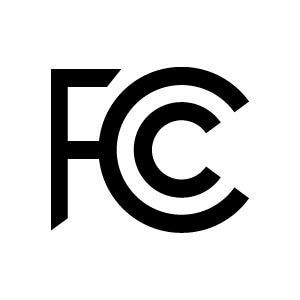Legal File
March 2026 Regulatory Dates for Broadcasters – Daylight Savings Time, Applications for New LPTV/TV Translator Stations, Political Windows, and More
March may not have any of the regular FCC filing deadlines, but there are still plenty of regulatory activities going on this month that should grab the attention of any broadcast or media company.
Read MoreFCC Sets Requirement to Promptly Update FCC Registration Numbers – No Need to Panic, But Licensees Should Ensure All FCC Information Is Accurate and Up To Date
In the last few days, there have been a series of articles and alerts that have alarmed broadcasters and caused worry that fines would be coming their way for not updating and correcting any FCC Registration Number (FRN) associated with their operations.
Read MoreNoncommercial Broadcasters Looking for FM Translators – A Window to File for New Translators is Coming Soon
The announcement of the coming window came by a draft Public Notice to be considered by the Commissioners at their next monthly open meeting on February 18. The Notice to be considered at the February meeting would instruct the Media Bureau to open a window for the filing of new translators in the reserved band, reserved for use by noncommercial licensees (including Low Power FM stations).
Read MoreFebruary 2026 Regulatory Dates for Broadcasters – EEO Reports; ATSC 3.0 and Earth Station Rulemaking Comment Deadlines; Class A, LPTV, and TV Translator Rules Effective Dates; Political Windows; and More (If the Government Does Not Shut Down)
While most of the country is currently frozen, February promises to heat up with several regulatory dates and deadlines broadcasters need to be aware of. But the possibility of another federal government shutdown looms.
Read MoreFCC Issues Public Notice on Equal Opportunities for Appearances on Non-News Programs
FCC Washington Counsel David Oxenford reports that the FCC Media Bureau has issued a Public Notice to provide “guidance” on the application of the political broadcasting “equal opportunity” rule – in particular, the application of the “bona fide news” exemption to late night and daytime talk shows. Although the rule applies equally to radio and television stations, the PN focuses on television programming.
Read MoreCrystal Ball Time – What Are the Regulatory and Policy Issues Broadcasters Should Be Expecting to Deal With in 2026?
It’s the start of another year, so it is time to dust off the crystal ball and look at what we expect to be the big regulatory and legislative issues facing broadcasters in the new year..
Read MoreCongressional Hearing on American Music Fairness Act Proposing New Music Royalty on Radio Stations – What is Being Considered
Last week, the Senate Judiciary Committee held a hearing on the American Music Fairness Act bill which proposes to adopt a new music royalty to be paid by over-the-air radio stations. The royalty would be payable to SoundExchange for the public performance of sound recordings. This means that the money collected would be paid to performing artists and record labels for the use of their recording of a song.
Read MoreGetting Ready for the 2026 Election – Steps Broadcasters Should Be Taking Now to Avoid Legal Issues with Political Broadcasting
Spending on political advertising is sure to increase as the new year rolls around, and some suggest that it could rival or even exceed the record amounts spent in prior elections. What should broadcast stations be thinking about now to get ready for the 2026 elections?
Read MoreDecember 17 Comment Date Set in 2022 Quadrennial Review Looking at Local Ownership Rules – What is at Stake, Particularly for Radio?
Wasting no time following the reopening of the government, the FCC has published its Notice of Proposed Rulemaking in the 2022 Quadrennial Review in the Federal Register, setting December 17 as the deadline for initial comments on the questions asked by the FCC.
Read MoreNovember 2025 Regulatory Dates for Broadcasters – Federal Government Shutdown, Daylight Savings Time, Comment Deadlines, FCC Open Meeting and more
In November, the biggest regulatory news may be the continuing federal government shutdown is continuing. If the shutdown persists, comment deadlines discussed below may shift until after the government resumes normal operations. As we discussed here, the FCC provided guidelines before the shutdown began on how regulatory deadlines would be impacted during the government shutdown, with most deadlines postponed until the day after the day that the FCC reopens.
Read More

